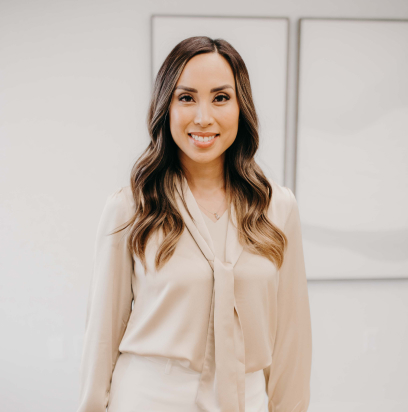
How to Invest in Your Health Like You Invest in Your Wealth
June 17, 2025
How to Upgrade Your Money Mindset for a More Confident Financial Future
July 18, 2025Time, Energy, and Money: Investing Your Three Most Valuable Resources

“The price of anything is the amount of life you exchange for it.” -Henry David Thoreau
Time, energy, and money are the foundation of how you live today and the blueprint for the life you’re building tomorrow. But in the constant drive to achieve, grow, and keep up, it’s easy to overinvest in one while quietly depleting the others.
Maybe you’re chasing higher earnings at the expense of sleep and mental clarity or cutting costs so aggressively that you’re trading well-being for savings. Or perhaps you’re staying busy just to feel productive, even when your body’s asking you to slow down.
The reality is these three resources are deeply intertwined. When one falls out of balance, the others often follow. However, when you manage them with intention—as resources to invest wisely, not just spend reactively—you begin to create a life that’s not only more sustainable, but richer in every sense of the word.
Time: Prioritize What Matters Most
We all get the same 24 hours in a day, but in a culture that glorifies productivity, it can feel like there’s never enough. The goal isn’t to fill every minute. It’s to use your time in a way that reflects what matters most to you.
Start by taking an honest look at how you’re spending your time over the course of a typical week. Where are your hours actually going? Are you engaging in activities that fuel your energy and align with your goals—or ones that leave you feeling depleted?
Once you have that clarity, begin to reshape your schedule with intention. Tools like time-blocking or calendar planning can help you protect time for the things that matter, whether that’s focused work, quality time with family, or simply space to breathe.
Make sure to build in white space for rest, creativity, or just being present. Time isn’t only for getting things done—it’s what gives your life texture, joy, and meaning.
If your days feel constantly overfilled, consider where your financial resources could help you reclaim your time and energy. Outsourcing tasks like grocery shopping, house cleaning, or administrative errands isn’t just about convenience. It can also be a strategic investment in your well-being.
When you free up space for what energizes and restores you, the returns ripple outward in every area of life. These quiet investments compound over time, leading to better decisions, clearer thinking, and a more fulfilling, intentional life.
Energy: Protect Your Capacity
You can’t operate at your best—at work, at home, or with your finances—if you’re running on empty. Energy is the fuel behind every decision you make and every goal you pursue. Yet it’s often the first resource we neglect and the last one we try to replenish.
Protecting your energy starts with awareness. Take note of what truly recharges you and what leaves you drained.
Maybe it’s getting more sleep, setting clearer boundaries at work, or being more selective about your commitments. The key is honoring your capacity instead of constantly pushing past it.
Financially, protecting your energy might mean simplifying wherever possible. Automating savings, consolidating accounts, or working with a professional to offload the mental load of money management can dramatically reduce stress and decision fatigue.
It’s also important to recognize the hidden energy costs of certain choices. Taking on more work for a higher income may look like a smart move on paper, but if it leads to burnout, it’s not sustainable. Likewise, saying yes to every opportunity may seem productive, but overcommitting can quietly erode your presence, focus, and health.
Energy is finite, but it’s also renewable—if you protect it. When you manage this resource wisely, it becomes one of your greatest assets, helping you show up more fully, think more clearly, and live with greater intention.
Money: Use It Intentionally
Money is the most visible of your resources—and often the most misunderstood. It’s easy to fall into the trap of thinking it’s all about accumulation.
However, true financial well-being isn’t just about how much you have. It’s about how well your money supports the life you want to live.
Every financial decision is an opportunity to align your resources with your values. When you view money as a tool—not just a target—you begin to make choices that feel more intentional and empowering.
That might look like:
- Spending on what genuinely enhances your life, whether that’s meaningful experiences, rest, trusted support, or connection with others.
- Saving and investing based on your vision for the future, not someone else’s idea of success.
- Giving generously in ways that reflect your values and make a difference in the lives of others.
Intentional money management isn’t about restriction—it’s about choice. A well-designed financial plan acts as a roadmap for those choices, helping you direct your dollars toward what matters most while reducing stress and second-guessing along the way.
Lastly, if you’ve ever hesitated to spend on something that saves you time, lightens your mental load, or brings confidence, keep in mind that’s not just an expense. It’s an investment in your capacity. Just like compounding interest builds wealth over time, strategic spending can expand your ability to show up fully—for your goals, your relationships, and yourself.
Strategies to Balance Time, Energy, and Money
Living in alignment with your time, energy, and money doesn’t mean achieving perfect balance at all times. Life is fluid, and your needs will shift.
However, with a few intentional strategies, you can stay centered, even as the circumstances around you evolve:
- Define your personal values. When you’re clear on what matters most to you, it becomes easier to say yes and no with intention.
- Establish non-negotiables. Maybe that’s eight hours of sleep, Sunday family dinners, or one meeting-free afternoon a week. Protect those boundaries fiercely.
- Automate where you can. Reduce the energy you spend on repeat decisions by automating savings, bill payments, and recurring calendar blocks.
- Regularly check in with yourself. Reflect on whether your current routine supports your goals or just keeps you busy and adjust as needed.
- Create space. Avoid maxing out every minute, dollar, or ounce of energy. Instead, leave room for flexibility, rest, and the unexpected.
Building a Richer Life, One Step at a Time
When you start viewing your time, energy, and money as resources to be intentionally invested—not just spent or managed—you begin to build a life that supports your well-being, your ambitions, and your financial future in meaningful, lasting ways.
It doesn’t require dramatic change. Small, consistent choices add up. With a clear plan and purpose behind your actions, you can steward all three of these resources wisely without compromising one in service of the others.
At SageMint Wealth, we believe true abundance is about more than just the numbers. It’s about feeling aligned with your values, energized in your everyday life, and confident in the future you’re pursuing. That’s why we work with our clients to design financial strategies that not only grow wealth—but help them live well along the way.
If you’re ready to build a life that’s rich in every sense of the word, we’re here to guide you one thoughtful, intentional step at a time. Reach out today to get started.
Related posts
Live Well. Do Good.











